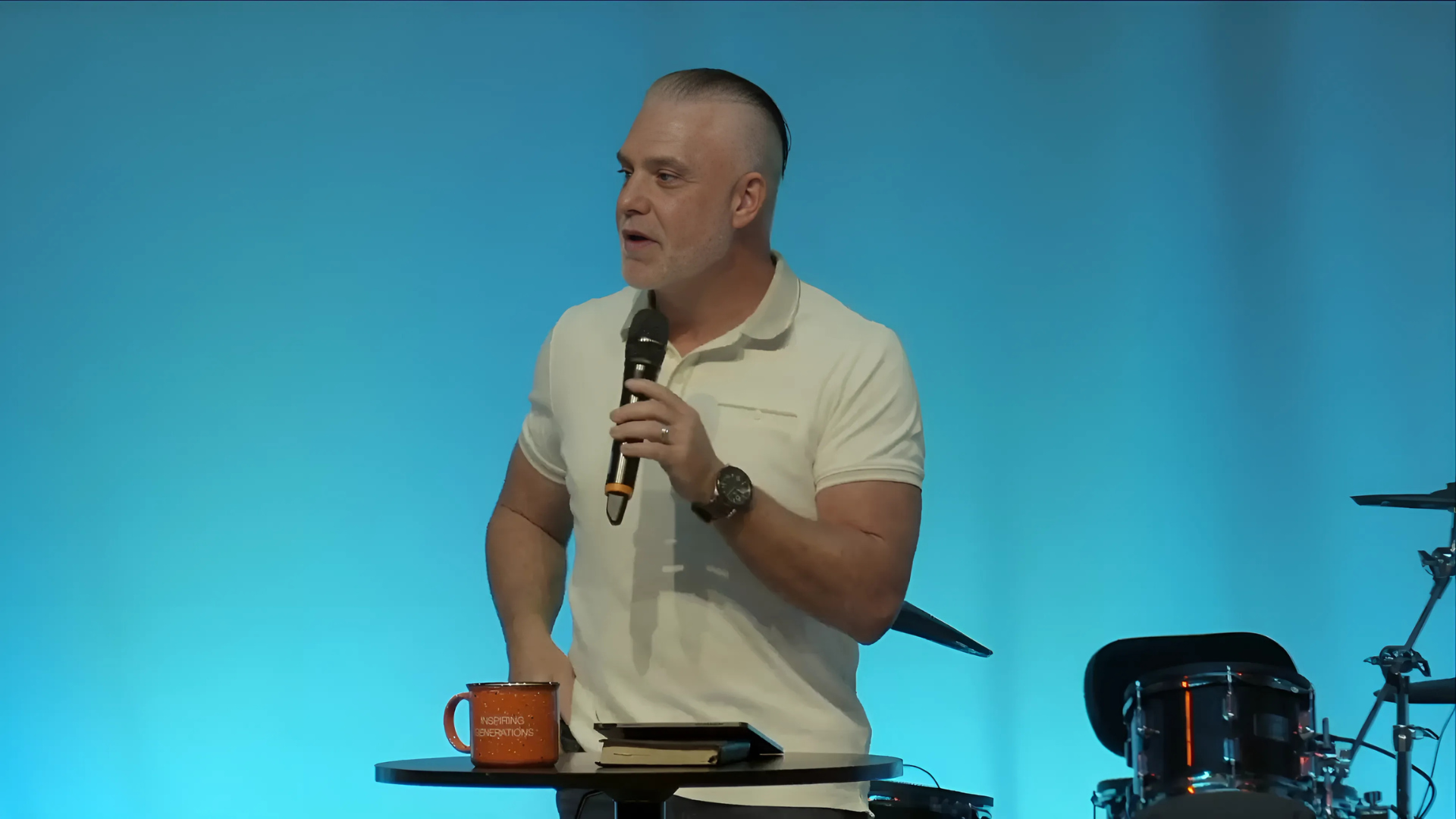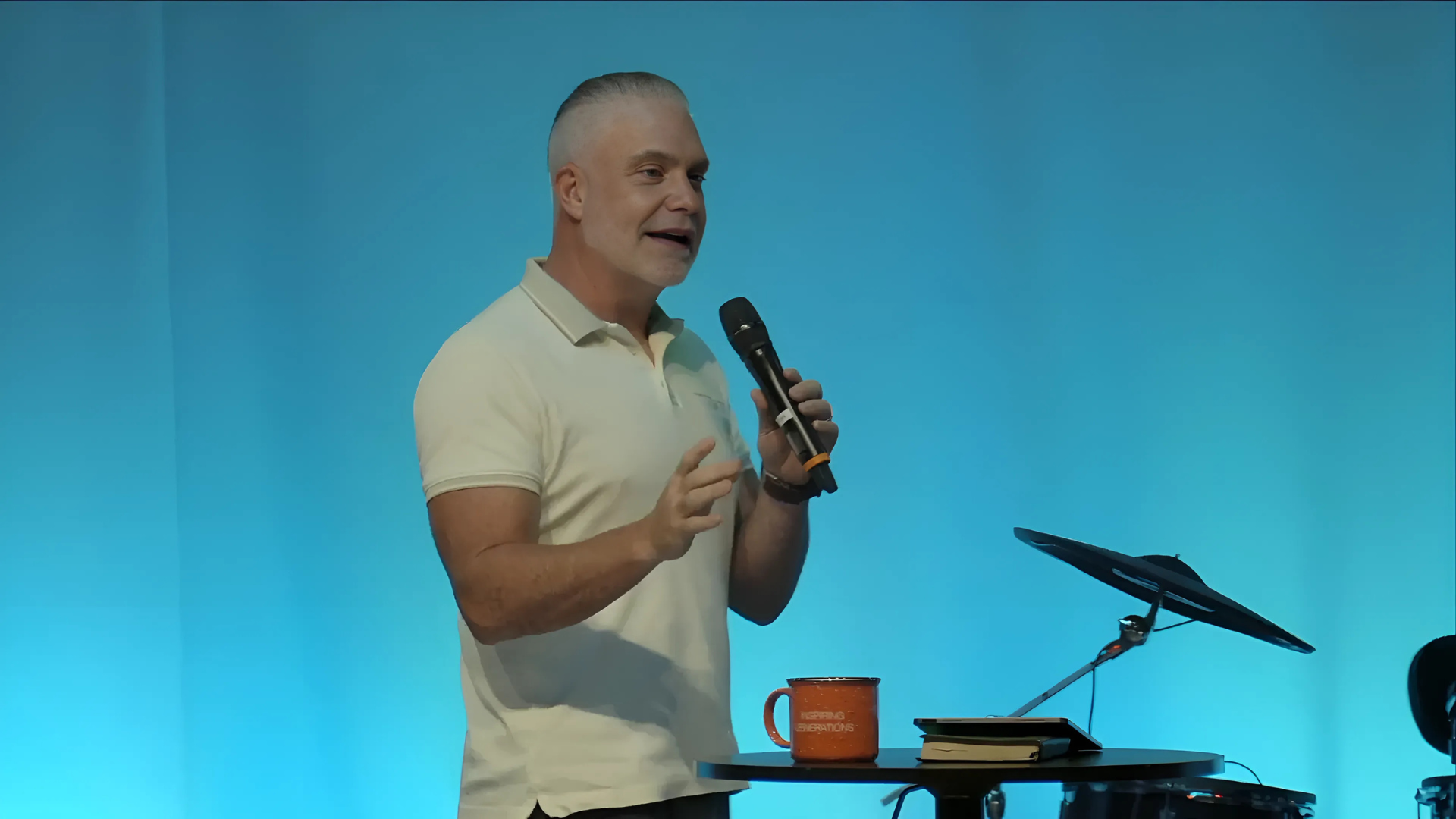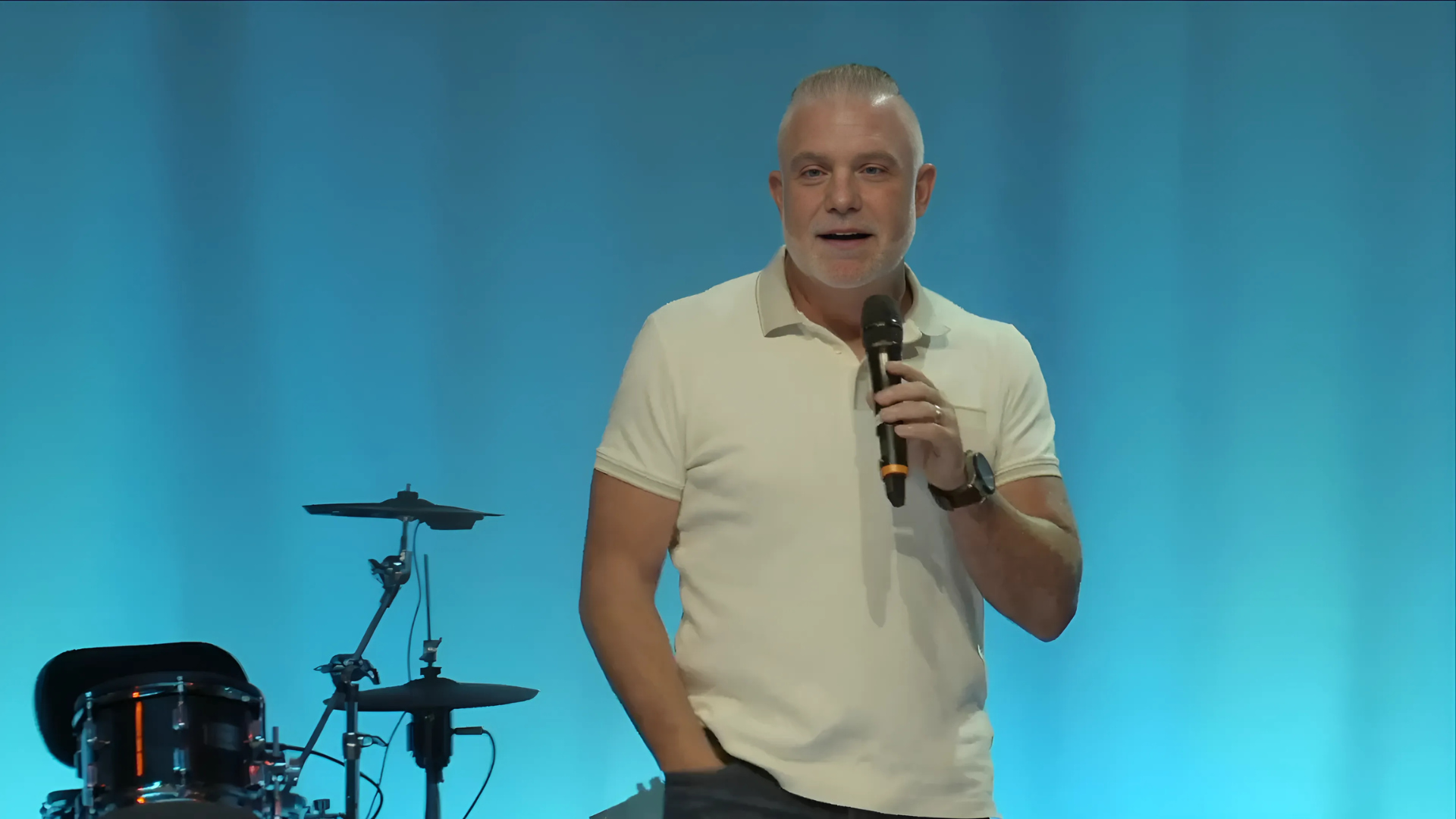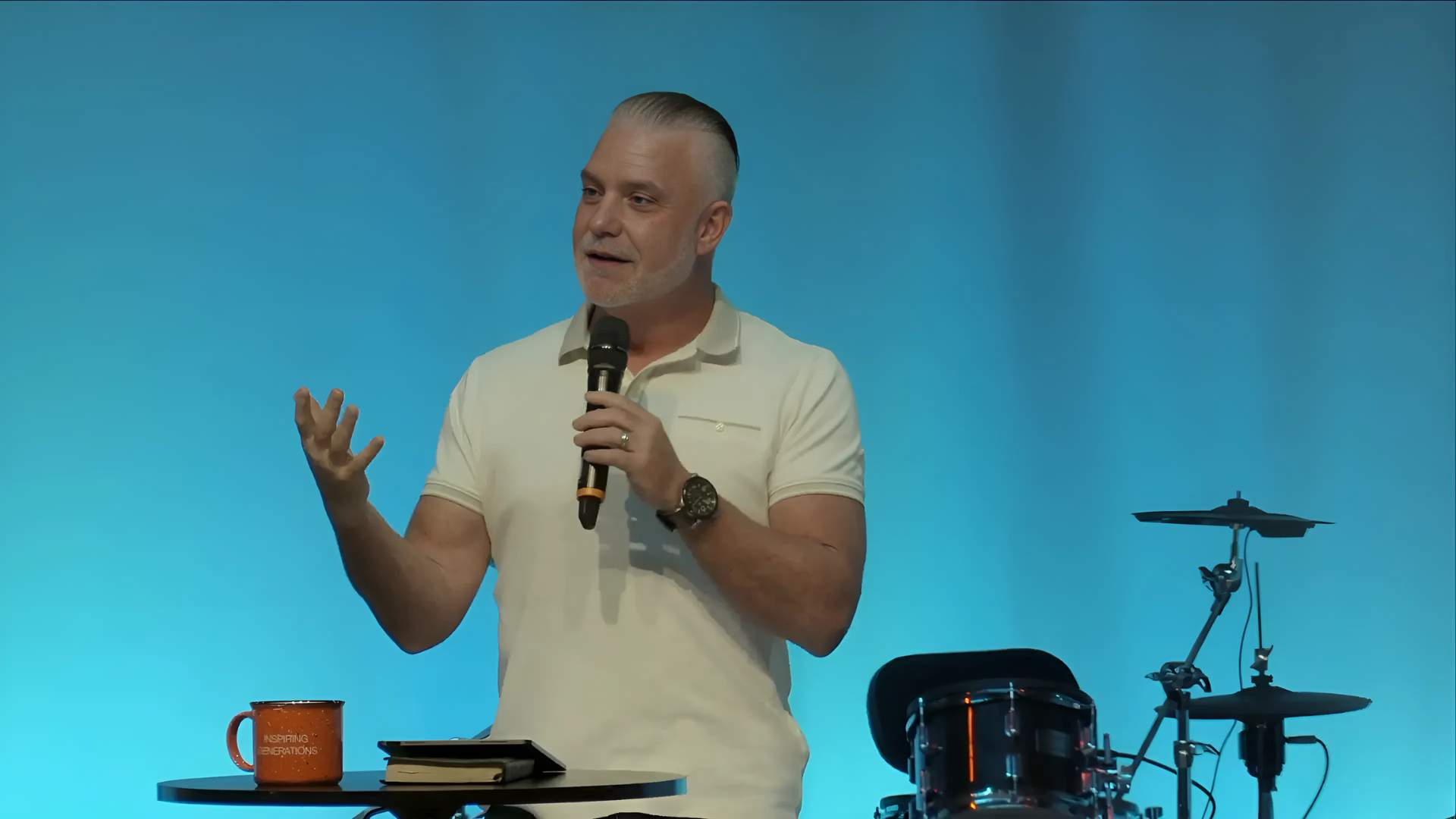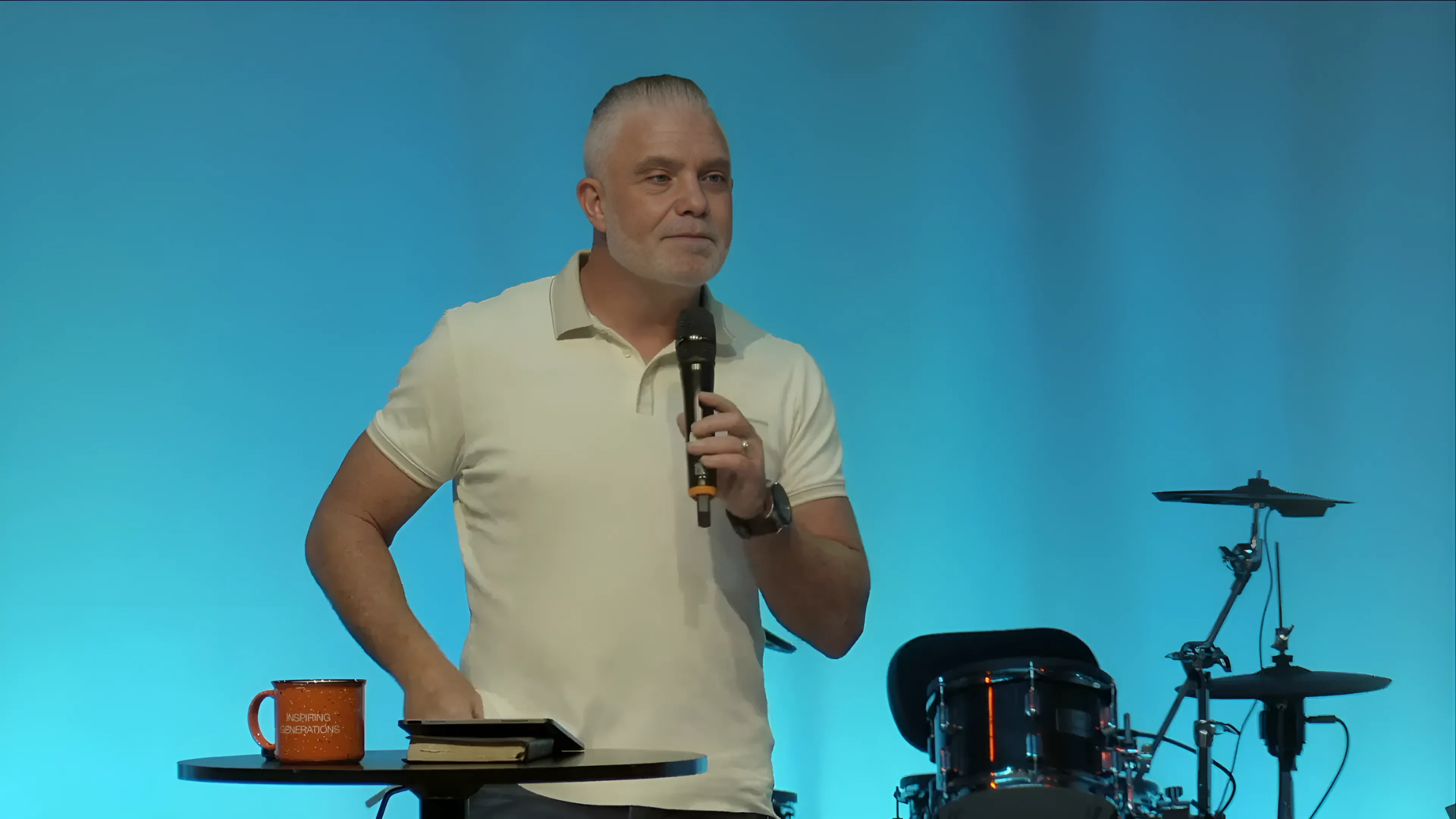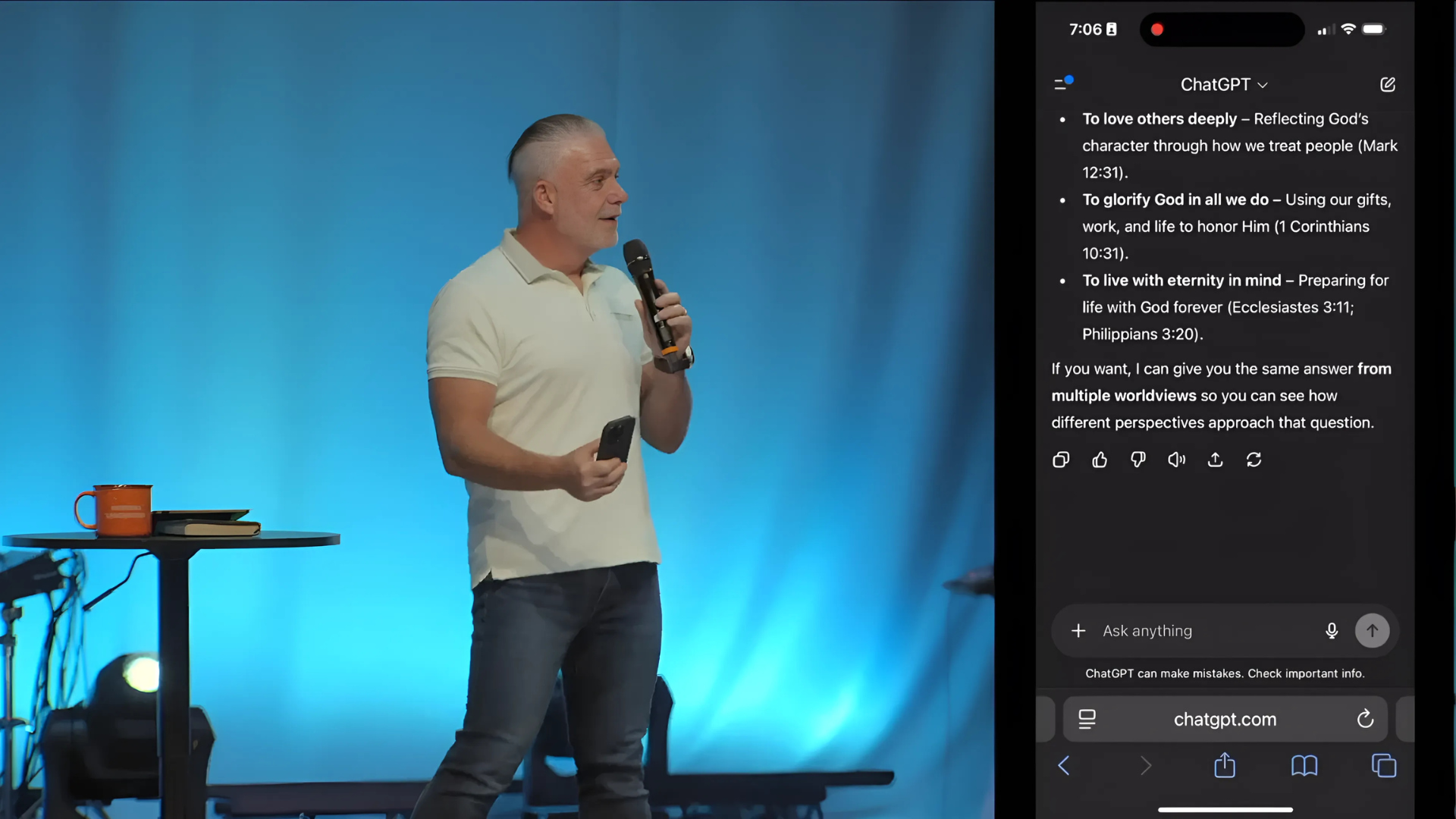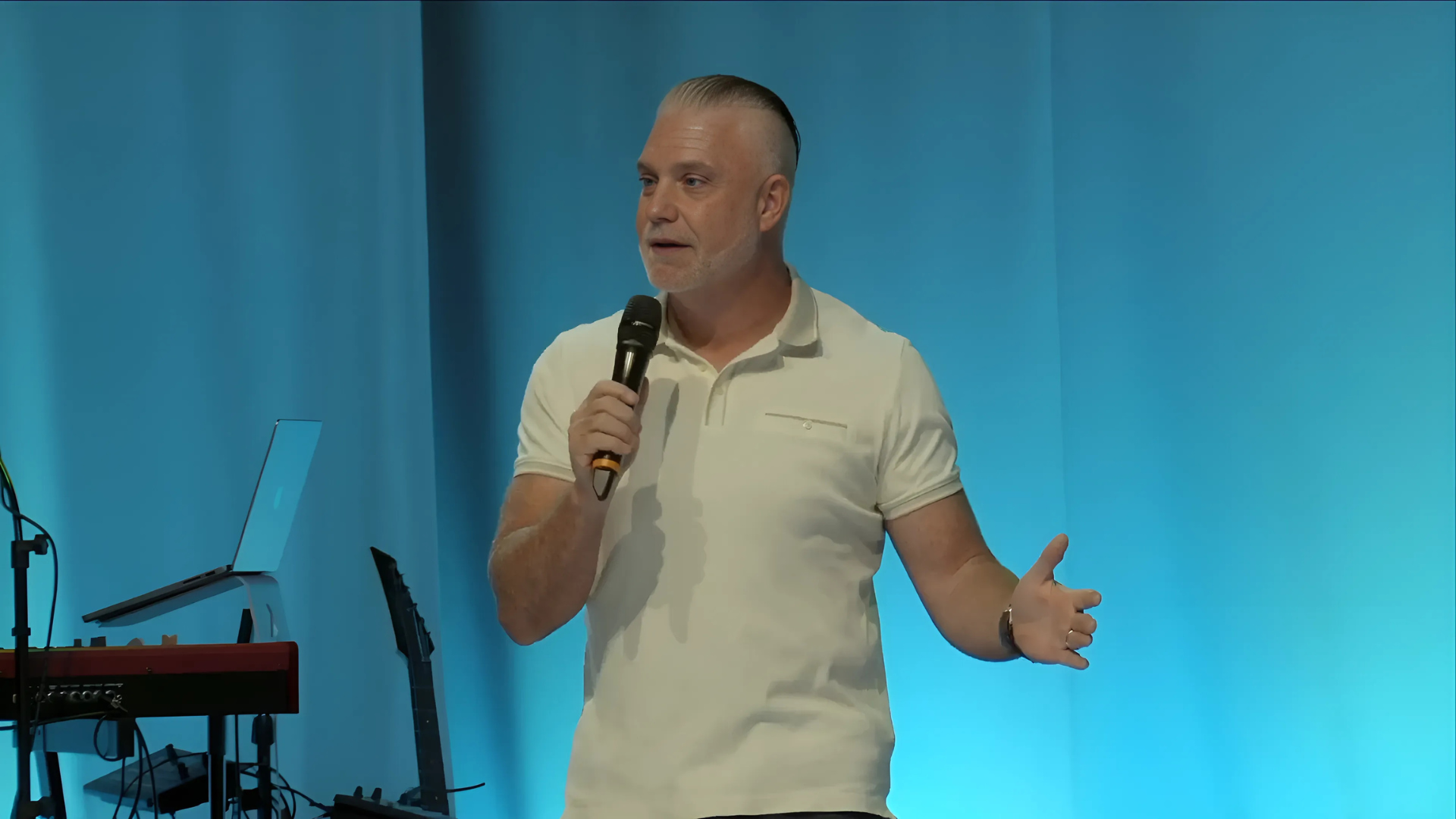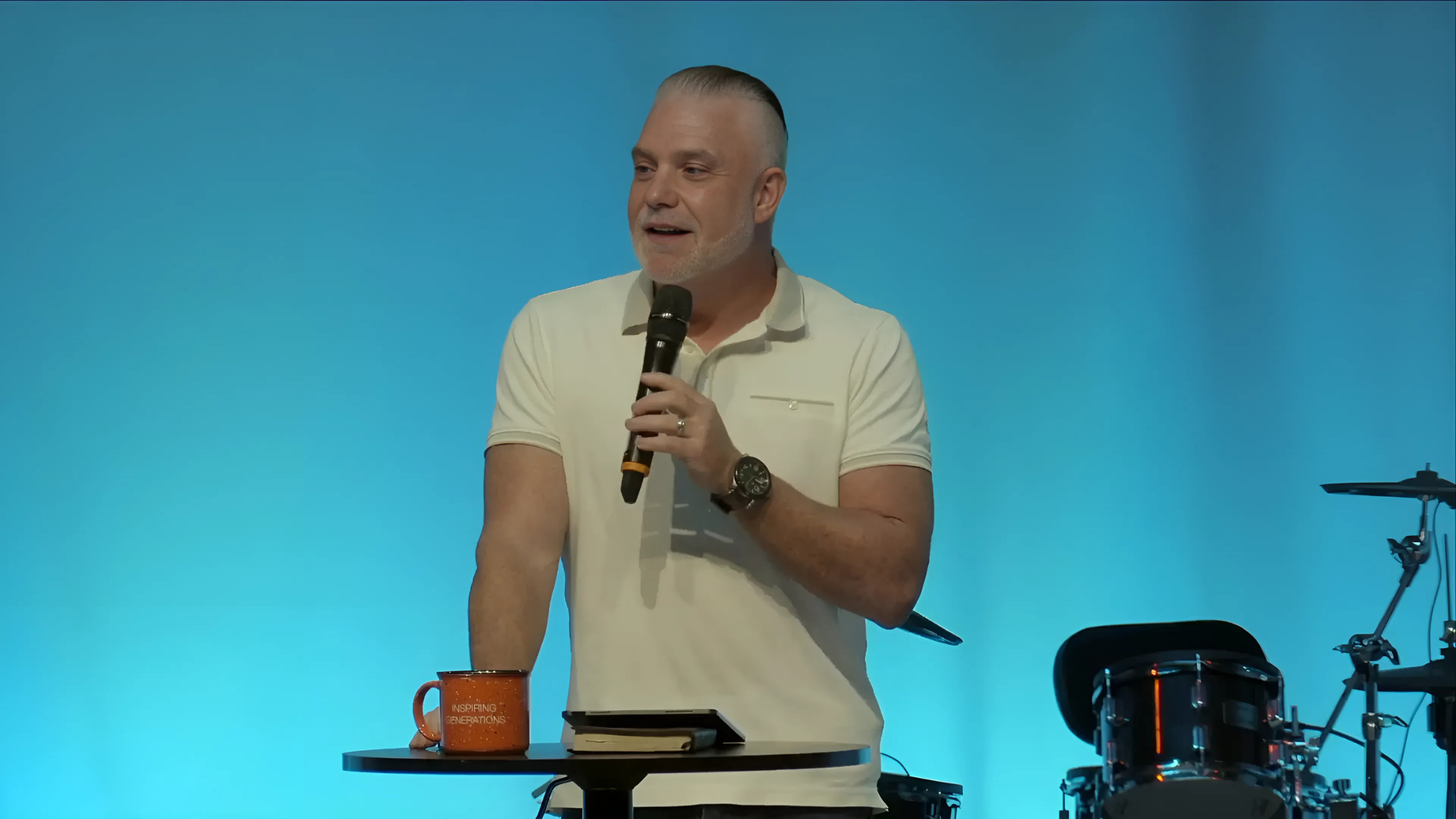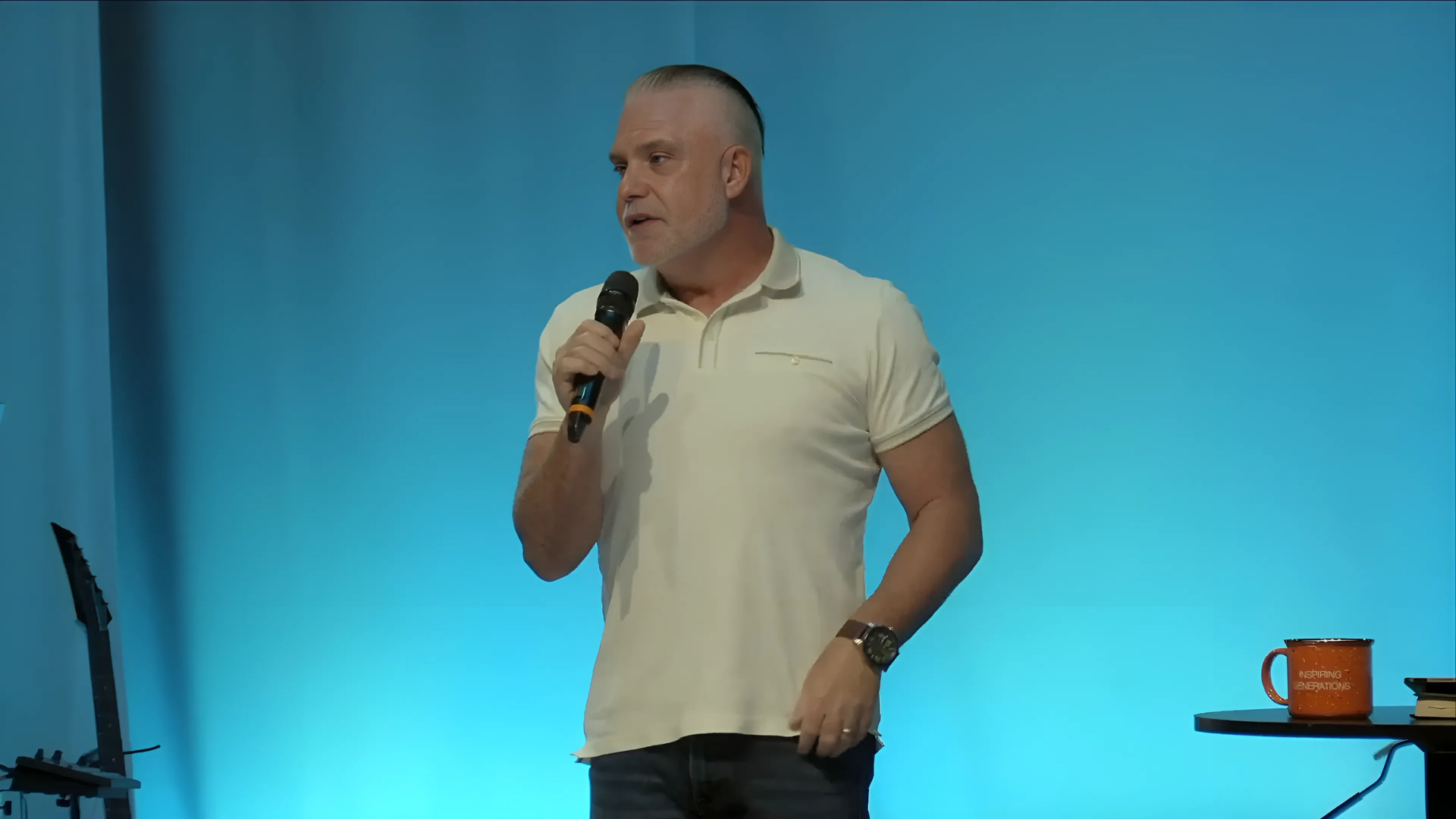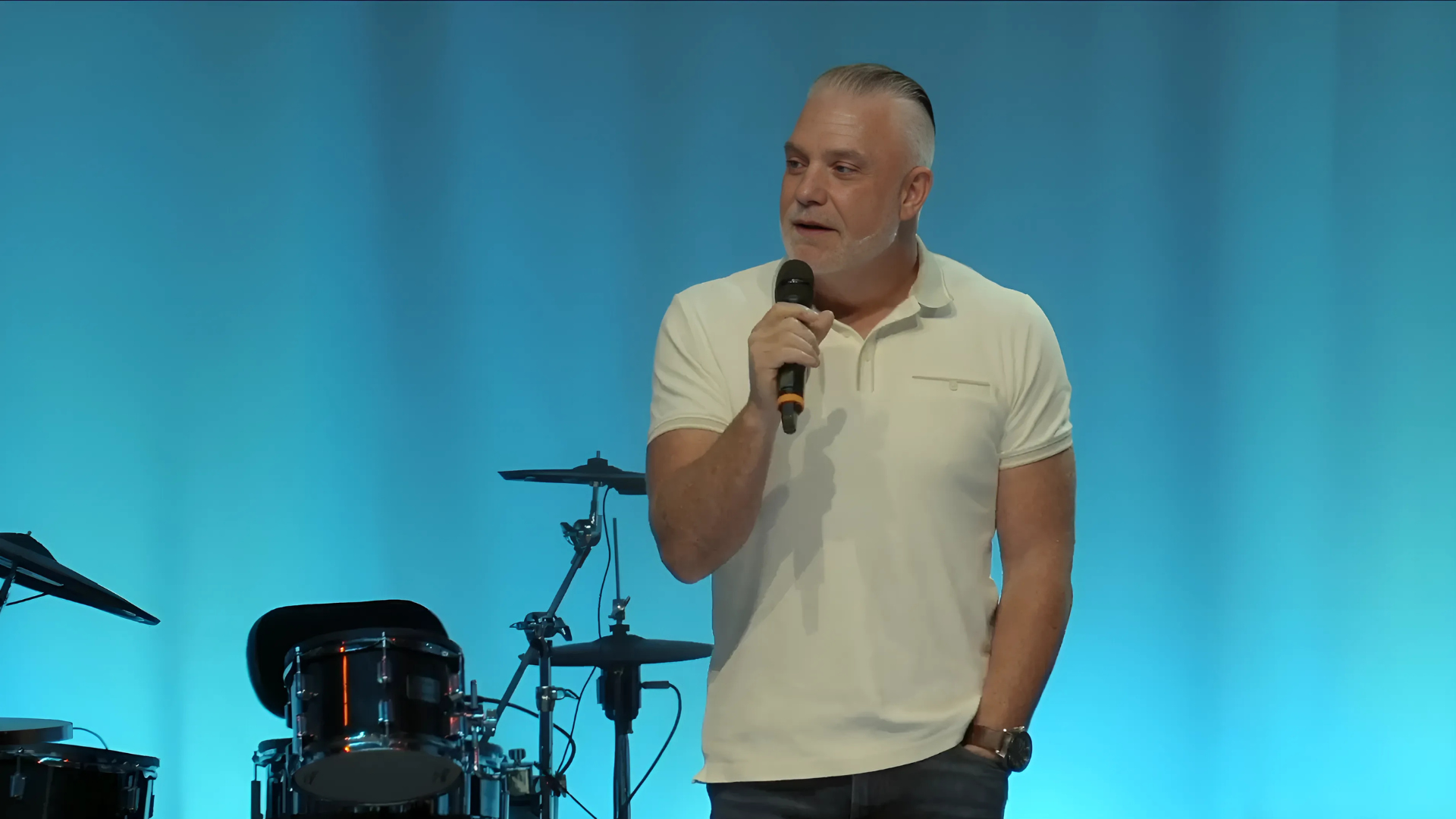Artificial Intelligence | Week 1 | Pastor Ben Pierce
This article is adapted from a message delivered by Pastor Ben Pierce of Generation Church FL in Jupiter, Florida. In a world where artificial intelligence is advancing at dizzying speed, we gathered to think carefully about how AI intersects with faith, not to fear the technology, but to learn how to use it wisely. The series’ practical aim is to help people discern what belongs to data and God, and to preserve genuine spiritual transformation in an age of instant answers.
Why This Series Matters: A Timely Conversation About Truth, Technology, and Faith
Artificial intelligence is not a fad. It’s a seismic shift in how information is created, curated, and consumed. Pastor Ben opens the conversation with a pastoral, straight-talking observation: AI is exploding into daily life so quickly that one generation feels left behind while another might be experimenting in ways no one anticipated, from productivity tools to, yes, AI companions that never say anything unkind.
That leads to a real and urgent question: when people begin to ask faith questions of AI, what are they really getting back? If the technology hands out answers that look right, are those answers helping people encounter God, or are they shaping an artificial spirituality instead?
The Rise of Faith Questions AI and Why Some Answers Feel Hopeful
Over the summer, Pastor Ben noticed people asking spiritual questions of AI: “What is the one true religion?” “Who is the one true God?” In one instance, an AI returned an answer that pointed to Jesus and Christianity. At first, this felt like a hopeful sign for evangelism, a tool that might help seekers. But the more he watched, the more he realised there’s a nuanced line between helpful information and misplaced reliance.
People are naturally curious. They ask the big questions: Does God exist? Why does God allow suffering? What happens after death? AI can produce answers for each of those questions. But Pastor Ben warns that an answer does not guarantee the presence of truth, transformation, or the leading of the Holy Spirit.
Top 10 Faith Questions People Ask AI and a Pastoral Response
Pastor Ben summarised the ten most common faith questions people pose to AI and offered a pastoral critique of where AI can help and where it cannot:
- 1. Does God really exist? How can I know for sure? This is foundational. Pastor Ben advises caution: do not place your eternal questions solely in the hands of man-made systems. AI aggregates human thought and patterns; it cannot produce a personal, relational encounter with the living God.
- 2. If God is good, why does he allow suffering? This is a good question to research. AI can point you to theological resources and historical answers that help make sense of suffering, but reading about it differs from wrestling with God in prayer and community.
- 3. How can I know God’s will for my life? If you want to know someone’s will, ask that person. AI can list patterns and opinions, but God speaks to hearts. Discernment comes through Spirit-led prayer, not a search result.
- 4. Is the Bible reliable and historically accurate? AI can aggregate scholarship, archaeological evidence, and apologetics. Use it as a research tool, but verify with trusted teachers, scripture study, and community.
- 5. How do I share my faith without pushing people away? Practical advice is helpful here. AI can provide communication tips, but loving evangelism grows from authentic relationships and sensitivity to the Spirit.
- 6. Can God forgive me for what I’ve done? Forgiveness is central to the gospel; it’s not merely a data point. While AI can point to biblical promises, forgiveness is experienced and received through a relationship with Christ.
- 7. What happens after you die? AI can summarise views from Christianity, Judaism, Islam, Eastern religions, and secular philosophy. That shows why a seeker needs personal guidance and encounter, not only a menu of theories.
- 8. Why are there so many religions, and how do I know which one is true? While initial research is helpful, the decisive evidence is personal and relational: Who is Jesus to you? Which path leads to true reconciliation with God?
- 9. How can I have more faith and feel closer to God? AI can recommend spiritual disciplines, reading plans, and practical steps. These are useful but aid a relationship with God, not substitutes.
- 10. How do I deal with doubts about my faith? Practical resources from AI can help with apologetics, testimonies, and counselling suggestions. However, pastoral care, prayer, and spiritual community remain primary.
The Limits of AI, and Why It’s Not the Final Authority
Pastor Ben explains how AI works in plain language: AI recognises patterns, runs algorithms, and draws from what humans have already written online. Its output is only as reliable as its inputs. If the internet contains opinions, errors, or biases, AI will reproduce and sometimes amplify them.
He gave a practical illustration: Ask AI for jokes about Jesus, and you might get acceptable responses; ask for jokes about other religious figures, and safeguards might block certain content. Minor inconsistencies like that reveal underlying biases and moderation rules. Pastor Ben asks us, “Where does this lead us down the road?”
He also tried asking ChatGPT live: “What’s the meaning of life?” The AI answered in a deeply Christian way: “To know God personally, to love God fully, to love others deeply…” The congregation appreciated that. However, Pastor Ben emphasised a crucial distinction: AI can point toward truth or even reproduce scriptural answers, but it cannot measure your soul, it cannot be your shepherd, and it cannot offer spiritual transformation. Only God can do that.
Deception is Subtle: The Biblical Warning About the Last Days
Pastor Ben quoted scripture to show that deception is almost right: “Deception is 99.9% truth.” He reminded the congregation of passages that warn people will “depart from the faith, giving heed to seducing spirits and doctrines of devils.” He explained that in Greek, “depart” describes a slow divergence, like a train slightly off its tracks that eventually leaves the rails. That is the danger with AI-generated spirituality: repeated deviations can lead away from biblical truth if not tested and rooted in God.
Three Practical Principles: How to Engage AI Without Losing Your Soul
Three guiding principles emerge from his sermon. These principles can be applied daily when technology tempts you to outsource wisdom or spiritual direction.
1) Knowledge is data; wisdom is direction for your life
We live in an ocean of information, but information alone doesn’t point your feet in the right direction. Pastor Ben quoted Proverbs 16:9: “A person’s heart plans their way, but the Lord directs their steps.” Data (what Google or AI gives you) is like directions from a GPS app: it can list routes and show you the quickest path to McDonald’s, but it cannot tell you whether that’s the correct destination for your health or your soul.
Wisdom, the Hebrew concept chokmah, is the ability to apply knowledge rightly. It is an engine of discernment that transforms facts into faithful decisions. This type of wisdom comes “from heaven” (James 3:13-17), and it looks like purity, peacemaking, mercy, and sincerity, not envy or selfish ambition.
Practical takeaway: Use AI and Google for research, but bring that information to God and trusted, sentient people, pastors, mentors, and community groups, who can help you interpret it prayerfully.
2) Wisdom isn’t downloaded, it’s developed
There is no spiritual app that downloads maturity into your soul overnight. Pastor Ben used several vivid examples. Solomon, the wisest king, didn’t ask God for riches; he asked for wisdom (2 Chronicles 1). God honoured that request and then gave him the other gifts too. The point is clear: seek the ability to apply knowledge, not simply the accumulation of facts.
Another analogy: muscles can’t be downloaded. You can buy a workout plan or stream P90X, but muscles are developed by practice, repetition, and sweat. Spiritual maturity is similar. You can download spiritual information, but that information won’t become lasting wisdom unless you practice prayer, worship, service, and Scripture.
Practical takeaway: Build habits of prayer, Bible study, and consistent fellowship that form the soil where knowledge becomes wisdom. Take your questions to God and wait for Him to shape your heart while you act in obedience.
3) Information does not equal transformation
Perhaps the message’s most pastoral point is that data is not sanctification. You can collect verses and quotes, but only God can renew your mind and transform your heart (Romans 12:1–2). Transformation is a work of the Spirit; information is a tool. The Greek word for “transformed” in Romans is metamorphoō, which means “transformed.” Think caterpillar to butterfly, an inside-out reconstitution.
Pastor Ben gave concrete life examples: If you struggle with low self-esteem, addiction, worry, greed, or rudeness, no amount of online advice alone will fix you. These are matters of the heart. Behavioral tips might help in the short term, but the deep, enduring work is spiritual renewal by the Holy Spirit.
Practical takeaway: Prioritise spiritual practices that invite transformation, surrender, prayer, worship, community accountability, and obedience. Use the internet and AI to supplement, not to replace, the path of inner change.
How to use AI responsibly as a person of faith
Pastor Ben does not counsel avoidance of AI. Instead, he offers measured guidance for engaging this technology as a Christian:
- Use AI as a research tool, not as an oracle. Let it point you to sources, books, and scholars. It can be a starting point, especially for historical or theological background. But remember: it summarises human content, not reveals new revelations.
- Bring AI-generated answers to God’s throne room. Any helpful insight should be filtered through prayer, scripture, and the counsel of Scripture believers.
- Check for biases and moderation gaps. Also, monitor how AI handles religion and morality. Inconsistent moderation or culturally skewed training data can result in answers that look plausible but are unreliable.
- Prioritise the sentient community. The church exists to be the place where discernment is practiced. Small groups, mentors, pastors, and sacramental rhythms help you test what’s true.
- Ask God for wisdom. James 1:5 promises that God gives wisdom generously to those who ask. Make that your first posture and your ongoing posture.
How to Recognise Deception: Practical Discernment Questions
Because deception often appears almost correct, Pastor Ben offered practical questions you can use to evaluate teachings, resources, and AI-generated answers:
- Does this teaching promote envy, selfish ambition, or division? (James 3)
- Does it lead to peace, mercy, and good fruit?
- Does the guidance require sacrificing your relationship with God for convenience or novelty?
- Is the source accountable and anchored in Scripture and community?
- WheScripturet, does the counsel lead you to Jesus, not the technology itself?
Repeatable spiritual disciplines help. When answers arise from an algorithm, bring them into prayer, test them against scripture, and discuss them with Scripture Christians. These steps are vital but straightforward; they slow the train back onto the rails.
A Pastor’s Personal Example: When Wisdom Required Stopping and Listening
Pastor Ben shared a personal story from his early years: while in Bible school, he was allowed to move to Georgia to help start a church. Conventional wisdom is that finishing his studies and following a steady plan pushed him one way. But he sensed God saying Stop and wait. After committing time to prayer and worship, one clarifying sentence came: “Ben, I’ve called you beside Mark for a purpose.” That was enough to uproot his life and obey.
Years later, he realizes that the hands-on experience of building and pastoring a church taught him things no degree could: humility in mowing carpets, wiring sound, bookkeeping, and preparing worship, all formative experiences that shaped his ability to lead. He didn’t download that wisdom; he developed it through obedience, knowledge, and dependence on God.
To Seekers: Information is Not the Same as Relationship
If you are exploring faith, the message is both compassionate and urgent. Pastor Ben reminded the congregation: You can gather historical proofs and information about Jesus, but that will never substitute for a real relationship with Him. Transformation precedes meaning. The Bible invites us to more than facts; it invites us into life.
Pastor Ben closed his message with an invitation to respond, offering a short prayer for those ready to surrender. The prayer addresses the issue’s heart: exchanging an information-driven approach for relational surrender. He prayed for forgiveness, a new identity as a child of God, and the willingness to commit to Jesus as Lord and Saviour.
Father, creator of heaven and earth, today while we have all this information at our fingertips, God, what we really need is transformation. God, would you come into my life? Would you forgive me of all of my sin? And Father, would you make me a new person today from the inside out? Would you not change my behavior, but transform my identity to a child of God? Jesus, thank you for dying for me so that I could live for eternity. And because you did what nobody else could do today, Jesus, I surrender my life to you and I make you my Lord and my Savior, I commit my days to you. Amen.
Practical Next Steps: A Checklist for Staying Spiritually Grounded in the Age of AI
Take these simple steps this week to ensure your spiritual decisions are God-led, not algorithm-led:
- Before you ask AI a faith question, pray: “Lord, help me to hear from you.”
- If AI gives you a striking answer about faith, refer it to Scripture and to at least one Christian you trust.
- Don’t outsource your major life decisions to an app. Pause, seek God, and wait for clarity when possible.
- Invest time in spiritual formation practices: daily Bible reading, prayer, worship, and regular fellowship.
- If you’re a parent, teach your kids about discernment and the difference between information and wisdom.
- Use AI for research, gathering resources, historical context, or sermon outlines, but let the Spirit-led community form the final counsel.
Conclusion: Our Challenge for the Series
Generation Church’s new series on artificial intelligence is a timely call to wisdom. Pastor Ben’s pastoral plea is that we will not let our spirituality become artificial. Technology is a tool; God is the source of wisdom. Information is everywhere; true transformation comes through the renewing work of the Holy Spirit.
As the Christian community, our calling is to harness AI’s benefits without ceding spiritual authority. We can use AI to research, summarise, prepare, and even reach people with the gospel, but the heart work of repentance, surrender, sanctification, and discernment must remain human and divine.
If you’re part of Generation Church or following this series online, the practical invitation is to identify one area where you need transformation, not just information. Slow down. Pray. Get counsel. Offer yourself as a living sacrifice (Romans 12). Seek wisdom from God (James 1:5). The goal is not merely to be intelligent about God, but to be known and transformed by Him.
Over the coming weeks, we will continue this conversation: How do spiritual disciplines, community, and the Holy Spirit shape our response to technology? How can we use tools like AI responsibly for evangelism, discipleship, and ministry without confusing data with discernment?
Join us for the series at Generation Church services weekly at 8:30 AM, 10:00 AM, and 11:30 AM, and bring your questions. Let us learn together how to live wisely in an age of extraordinary information and maintain an authentic, deep, and God-centred spirituality.

